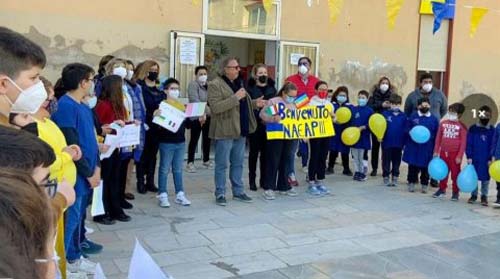Italy: E-learning platform for language learning launched at schools

Rome: UNICEF and the Akelius foundation have introduced an e-learning platform into Italian schools for language learning. The aim is to support newly arrived students with their learning of the Italian language as well as Italian students with learning English.
UNICEF, in collaboration with the Akelius foundation, has introduced an e-learning platform into Italian schools for language learning. The platform combines face-to-face lessons with contents accessible online on tablets, alone or in small groups.
The aim is to support newly arrived students with their learning of the Italian language as well as Italian students with learning English.
The e-learning platform will also be made available to schools during the summer period with an aim of reaching about 1,000 students newly arrived from Ukraine and other countries so they can prepare for the start of school in September, according to the UN agency.
Schools interested in implementing the course will be supported by UNICEF in collaboration with the ISMU foundation, including through access to digital devices, teacher training, and monitoring activities.
According to UNICEF, the Akelius foundation through its work contributes to “inrease school attendance levels as well as motivation and the active participation of students.” Their methods were easily adaptable to the needs of minors with special education needs, helping them in the process of school integration, UNICEF said.
UNICEF has reportedly tried the platform in 10 countries thus far and in four years has involved over 42,000 children and adolescents as well as over 3,200 teachers and teaching staff.
In Italy, the adoption of Akelius courses began in the 2021-2022 school year in some schools in Bologna and Roma and has thus far got over 400 students involved between the ages of 4 and 10 — including some newly arrived in the country — and about 30 teachers.
UNICEF noted that in the 2019-2020 school year alone, over 870,000 non-Italian students were registered in the Italian school system, with 3% (over 20,000) classified as “newly-arrived”. These are children that, in most cases, do not have the linguistic skills for proper scholastic and social integration into the communities in which they live.
The recent arrivals of children from Ukraine has doubled the number of non-Italian students for the 2022-2023 school year. Since the beginning of the emergency in early May, an estimated over 27,000 more children of Ukrainian origins have been registered in Italian schools, about half of whom in primary schools.





